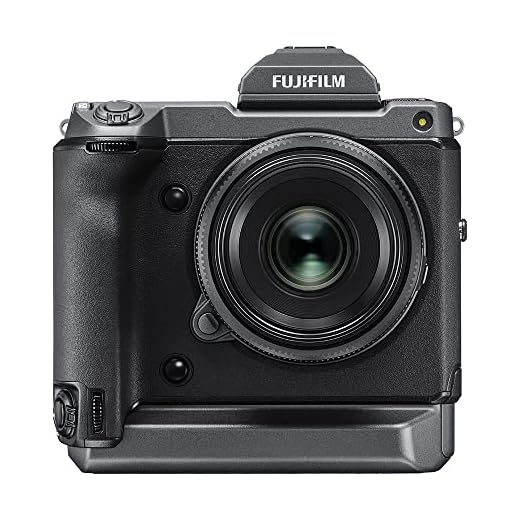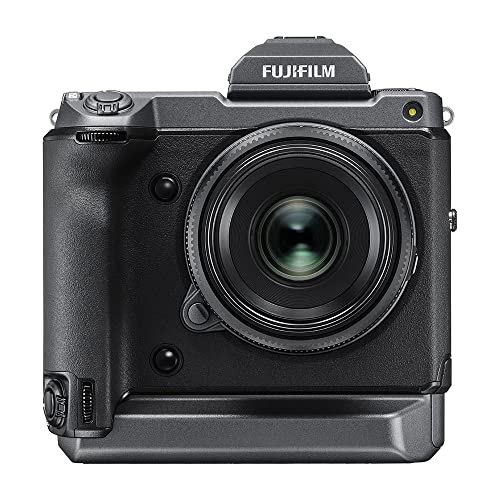

Large format digital cameras have revolutionized the world of photography, providing professional photographers with unparalleled image quality and extraordinary detail. However, like any technology, they come with their own set of disadvantages that photographers need to consider.
One significant disadvantage of a large format digital camera is its size and weight. These cameras are larger and bulkier than their smaller counterparts, making them less portable and more cumbersome to carry around. The bulky size and weight can limit a photographer’s mobility and flexibility, especially when shooting in remote or challenging locations.
Another disadvantage is the high cost associated with large format digital cameras. These cameras are typically more expensive than smaller format cameras due to their specialized technology and manufacturing process. Additionally, the cost of accessories such as lenses and tripods designed for large format cameras can also be significantly higher.
Furthermore, large format digital cameras require a steep learning curve. The complex operations and technical aspects of these cameras may overwhelm inexperienced photographers who are not familiar with the intricate controls and settings. This can lead to a longer learning period and potentially result in missed photo opportunities.
Despite these disadvantages, large format digital cameras continue to be a popular choice among professional photographers who prioritize image quality and artistic expression. They provide the ability to capture stunning, high-resolution images with exceptional clarity and tonal range, making them indispensable tools for photographers in certain fields such as landscape, architecture, and fine art photography.
What is a large format digital camera
A large format digital camera is a type of camera that uses a larger film or sensor size compared to traditional digital cameras. These cameras are known for their ability to capture extremely high-resolution images and produce exceptional image quality. Large format cameras are commonly used in professional photography and are often preferred for landscape, architectural, and studio photography.
Advantages of a large format digital camera
There are several advantages to using a large format digital camera:
- High level of detail: The larger film or sensor size allows for more detail to be captured, resulting in sharper and more detailed images.
- Wide dynamic range: Large format cameras have a wider dynamic range, meaning they can capture a wider range of tones and details in both highlights and shadows.
- Greater control over depth of field: The larger format allows for greater control over depth of field, making it easier to achieve selective focus and create a blurred background.
- Ability to make large prints: The high resolution and image quality of large format cameras make it possible to create very large prints without sacrificing image detail.
Disadvantages of a large format digital camera
While there are many advantages to using a large format digital camera, there are also some disadvantages to consider:
| Disadvantage | Explanation |
|---|---|
| Cost | Large format cameras are significantly more expensive than smaller digital cameras, making them less accessible to amateur photographers. |
| Size and weight | Large format cameras are bulkier and heavier than smaller digital cameras, making them less portable and more challenging to carry around. |
| Complexity | Large format cameras require a higher level of technical knowledge and skills to operate, including understanding principles of perspective control and camera movements. |
| Slower workflow | The process of using a large format camera, from setting up the camera to capturing the image and developing the film, can be more time-consuming compared to using smaller digital cameras. |
Despite these disadvantages, the exceptional image quality and unique capabilities of large format digital cameras make them a valuable tool for professional photographers who require the highest level of detail and control in their work.
Advantages of a large format digital camera
A large format digital camera offers many advantages over other types of cameras, making it a popular choice for professional photographers and advanced enthusiasts. Here are some key advantages of using a large format digital camera:
Higher image quality
Large format cameras have a larger sensor size, which allows them to capture more detail and produce higher quality images compared to smaller sensor cameras. The larger sensor size also results in better dynamic range, improved color accuracy, and reduced noise levels, especially in low-light conditions.
Greater control over depth of field
Large format cameras typically feature interchangeable lenses with wider maximum apertures, allowing photographers to achieve shallower depth of field and create images with a pronounced subject separation from the background. This greater control over depth of field can be particularly useful in portraiture and still life photography.
Increased resolution and enlargement capabilities
The larger image sensor in a large format camera generally leads to higher resolution images. This means that even when cropping a photo or enlarging it significantly, the resulting image will retain fine details and sharpness. This can be especially beneficial for photographers who need to capture highly detailed architectural or landscape shots.
Enhanced creative possibilities
Large format cameras often allow for movements such as tilting, shifting, and swinging, which can help control perspective and maximize sharpness across the image. These movements enable photographers to achieve a greater degree of creative control and perspective correction, which can be especially useful in architectural and product photography.
Precise focusing and manual controls
Large format cameras typically have a manual focus system that offers precise control over focusing, allowing photographers to achieve pinpoint sharpness and selective focus. Additionally, these cameras often have manual controls for exposure, shutter speed, and aperture, giving photographers complete control over the creative process.
In conclusion, large format digital cameras offer a range of advantages that make them highly desirable for photographers seeking maximum image quality, creative control, and the ability to capture stunning, high-resolution photographs.
Disadvantages of a Large Format Digital Camera
1. Size and Weight: One of the main disadvantages of a large format digital camera is the sheer size and weight of the equipment. These cameras are typically larger and heavier than their smaller counterparts, making them less portable and more difficult to carry around for extended periods of time.
2. Cost: Large format digital cameras are generally more expensive compared to smaller format ones. The larger image sensor, higher resolution, and specialized features contribute to the higher price tag. Additionally, the lenses and accessories for these cameras can also be quite costly.
3. Limited Autofocus: Large format digital cameras often lack advanced autofocus systems found in smaller cameras. This can make it more challenging to achieve precise focus, especially in fast-paced or unpredictable shooting situations.
4. Bulky Setup: Using a large format digital camera requires a more complex and time-consuming setup. With the need for large tripods, more space, and additional equipment like a dark cloth or loupe for composing the shot, the process of capturing an image can be slower and less convenient.
5. Reduced Burst Mode: Due to the larger file sizes produced by large format cameras, their burst mode capabilities are often limited or nonexistent. This means that continuous shooting and capturing rapid motion may not be feasible with these cameras.
6. Limited ISO Performance: Large format digital cameras are typically not as capable as smaller cameras when it comes to handling high ISO settings. This can result in increased noise levels and reduced image quality in low-light conditions.
7. Restricted Availability: Large format digital cameras and accessories may not be as readily available as those for smaller format cameras. This can make it more challenging to find and purchase specific equipment or get quick support if needed.
8. Steep Learning Curve: Mastering the technical aspects of large format digital photography requires a steep learning curve. Understanding concepts such as tilts, swings, and shifts, and effectively using large format lenses and movements demand a solid understanding of photography principles and additional technical skills.
While there are disadvantages to using a large format digital camera, many photographers still appreciate the unique qualities and unparalleled image quality these cameras can deliver. Ultimately, the choice of camera format depends on the photographer’s specific needs and preferences.
Factors to consider before using a large format digital camera
Using a large format digital camera offers numerous advantages, such as superior image quality and the ability to capture intricate details. However, there are also some factors to consider before using this type of camera:
- Size and weight: Large format digital cameras are significantly larger and heavier than standard digital cameras. This can make them cumbersome to carry and operate, especially during extended shoots or when traveling.
- Cost: Large format digital cameras are generally more expensive compared to other types of cameras. In addition to the higher initial investment, there are also ongoing costs for accessories, such as lenses, film, and storage media.
- Complexity: Large format digital cameras are more complex to operate compared to point-and-shoot or even DSLR cameras. They require a greater level of technical knowledge and experience, including understanding of exposure, focus, and camera movements.
- Slow operation: Due to the large file sizes and high-quality images produced by large format digital cameras, the processing times can be slower compared to smaller cameras. This can result in longer waiting times between shots.
- Limited availability of accessories: Compared to standard digital cameras, there is a limited selection of accessories available for large format digital cameras. This can include lenses, tripods, and other specialized equipment.
- Portability: Large format digital cameras are not as portable as smaller cameras, making them less suitable for certain types of photography, such as street photography or travel photography where mobility is crucial.
- Learning curve: Using a large format digital camera requires a steep learning curve, especially for photographers who are used to working with smaller cameras. It takes time and practice to master the intricacies of large format photography.
Considering these factors will help photographers make an informed decision about whether a large format digital camera is suitable for their specific needs and shooting style.
Question-answer:
What are the drawbacks of using a large format digital camera?
One major disadvantage of a large format digital camera is its size and weight. These cameras are typically larger and bulkier than regular digital cameras, making them less portable and more difficult to carry around. Additionally, the larger size of the camera can make it more challenging to handle and maneuver, especially in fast-paced shooting situations. The larger size also means that it may require specialized equipment and accessories, which can be more expensive.
Are there any downsides to using a large format digital camera compared to other types of cameras?
Yes, there are several disadvantages to using a large format digital camera. One major drawback is the cost. Large format cameras, especially high-end models, can be significantly more expensive than regular digital cameras. Another disadvantage is the limited shooting speed. Large format cameras often have slower shooting speeds and longer exposure times compared to other types of cameras, which can be a disadvantage in situations where capturing fast-moving subjects is important. Additionally, the large file sizes of the images produced by these cameras can require more storage space and slower processing times.







